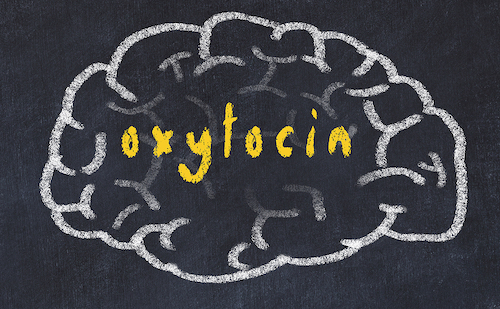 The “love hormone” oxytocin can occasionally have anti-social effects depending on where in the brain it is created.
The “love hormone” oxytocin can occasionally have anti-social effects depending on where in the brain it is created.
Oxytocin, a hormone that can regulate prosocial behaviors like trust, bonding and empathy has also been demonstrated to play a role in anti-social behaviors like envy, anxiety and reduction in cooperation.
How the hormone could have such opposing roles has long remained a mystery, but researchers from UC Davis have uncovered how this might happen.
“Oxytocin is a hormone that has a big reputation for facilitating social interactions and reducing anxiety. However, for a long time we’ve known that sometimes giving oxytocin to humans can increase anxiety. How can one hormone have such different effects on anxiety or social behavior?” Brian Trainor, senior author of the study, a professor of psychology and director of the Behavioural Neuroendocrinology Lab at UC Davis told Theravive.
Trainor worked with lead author of the study, Natalie Duque-Wilckens, a former doctoral researcher at UC Davis now based at Michigan State University.
“In our previous work we knew that there was a group of oxytocin producing cells in the brain that was more active in mice showing social anxiety related behaviors. Natalia’s study was designed to test how this group of cells affected social anxiety behaviors,” Trainor said.
Most oxytocin is produced in the part of the brain called the hypothalamus, but some is also produced in a part of the brain called the bed nucleus of the stria terminalis, or BNST. The BNST plays an important role in stress response.
Working with mice, the researchers found that oxytocin that was produced in the BNST increased stress induced social anxiety behaviors. This could explain why oxytocin can at times have an antisocial effect.
“Natalia used an approach called antisense knockdown to prevent oxytocin synthesis in a part of the brain called the bed nucleus of the stria terminalis. This part of the brain is known to control anxiety behaviors but is not normally thought of as a place where oxytocin is made and released. When Natalia blocked oxytocin synthesis in the BNST mice that had been exposed to social stress, she saw a decrease in the social anxiety behavior that is usually seen in these mice,” Trainor explained.
“So stress increases the activity of oxytocin producing cells in the BNST, and this oxytocin facilitates the increase in social anxiety that we see after stress. The BNST is an important regulator of both social behaviors and anxiety. Natalia’s work suggests that oxytocin produced in this part of the brain is important for making bad social experiences worse.”
Although there are oxytocin nerve cells in the BNST of both males and females, past research has shown that social stress has a longer-term impact on the oxytocin neurons of females. The authors say this is interesting, as social anxiety disorders are also more common and with more severity in women than men.
But the reason this effect is stronger in females is still unknown.
“We don’t know why yet. We think it has something to do with how stress affects the oxytocin neurons themselves. When Natalia infused oxytocin into the BNST both males and females would show the social anxiety, so we think that it’s something important about how stress affects the production or release of oxytocin. We have a new grant from the National Institute of Mental Health to try to figure out how this happens,” Trainor said.
They say that oxytocin producing nerve cells in the BNST part of the brain are connected to areas that control anxiety related behavior.
Putting oxytocin into these parts of the brain caused mice who were ordinarily not stressed to show social anxiety behaviors like that which would be experienced in social stress. The authors say this suggests that whether or not oxytocin has a prosocial or antisocial impact depends on where in the brain it is acting.
“Studying how oxytocin works in different brain areas in rodents like mice can help us understand how oxytocin affects behavior in humans because we can’t study human brains in the same way we can do in rodents,” Trainor said.
“The results suggest that we can’t assume that oxytocin will always reduce anxiety and that in some cases, using medications that block oxytocin action could have beneficial effects. This has not been tested in humans though.”
Elizabeth Pratt is a medical journalist and producer. Her work has appeared on Healthline, The Huffington Post, Fox News, The Australian Broadcasting Corporation, The Sydney Morning Herald, News.com.au, Escape, The Cusp and Skyscanner. You can read more of her articles here. Or learn more about Elizabeth and contact her via her LinkedIn and Twitter profiles.